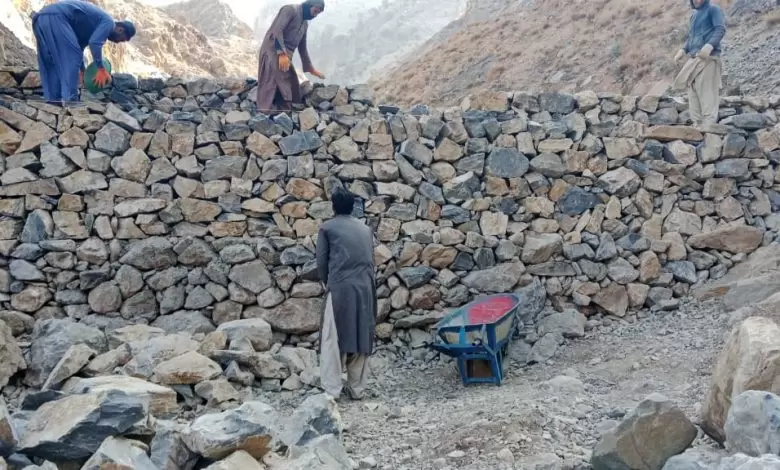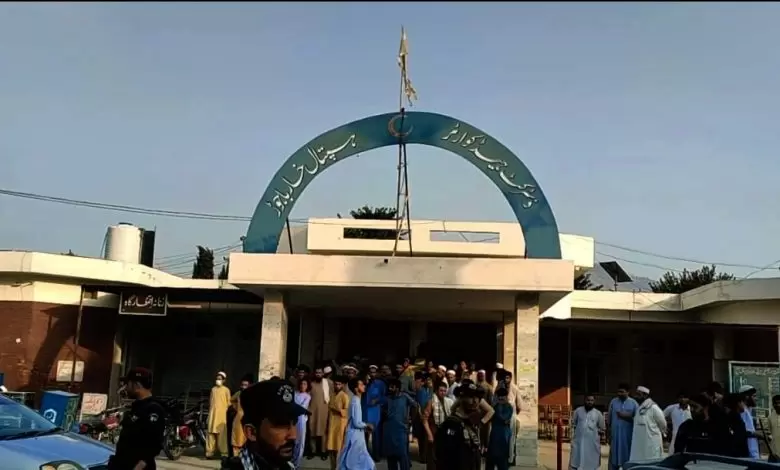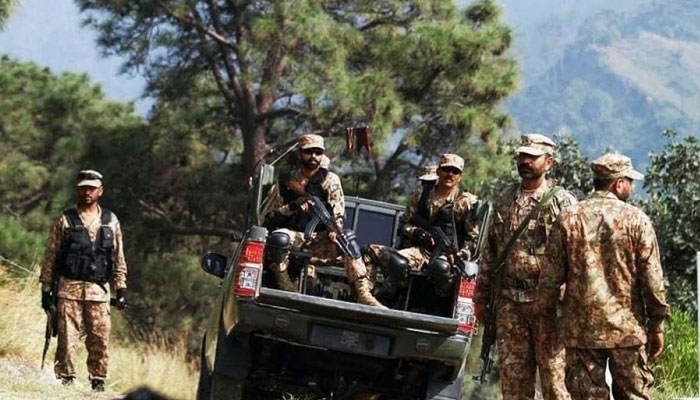
In Landi Kotal, a tehsil of Khyber district, seasonal heavy rains often lead to damage to roads, waterways, and homes, but the rainwater ends up going to waste. In response, local youth have taken matters into their own hands by building small ponds and rainwater dams to store this precious resource.
These young men visit different areas, conduct site inspections, and then start constructing rainwater catchments. One of them, Altaf Shinwari, said that due to climate change, the water table across Khyber, particularly in Landi Kotal, is dropping rapidly. As a result, many tube wells have dried up, and residents are increasingly deprived of access to clean drinking water. Women and children are forced to walk long distances, carrying water back home on their heads. The receding groundwater levels are also contributing to deforestation and a drying landscape, severely affecting the region’s natural environment. Rising temperatures due to declining tree cover are compounding the crisis.
Altaf and his fellow volunteers believe that if the government is not taking action, then it is up to them to respond, even if on a limited scale. So far, without any government or organizational assistance, they have spent hundreds of thousands of rupees from their own pockets to build rainwater dams at more than five sites in Landi Kotal.
Also Read: PMD Forecasts Rain and Strong Winds for Peshawar, KP and Several Other Parts of Pakistan
Altaf said that rainwater conservation structures have been constructed in Shinwari, Charwazgai, Bhagu Sheikhmal, Neki Khel, and Malagori. These dams have already started benefiting local communities, helping with water access and forest regeneration.
He added, “We are funding this work ourselves. We have not received any help from government departments or any organization so far. Most of our work takes place at the foot of the mountains, which is both expensive and extremely difficult due to the challenges of transporting construction material. Still, our team remains committed. Wherever there is a need, we try to reach and build.”
Despite the lack of resources and numerous hurdles, Altaf Shinwari and his friends remain determined to confront the effects of climate change. “Our efforts will play a key role in helping to raise the underground water table. We are also planning to build larger ponds in the future and will work on afforestation projects at the mountain base to improve the environment. But beyond dams and ponds, the real need is public awareness so that people understand the importance of preventing water wastage — one of the major contributors to climate change.”
According to Altaf, there are many locations in Landi Kotal where small rainwater dams can be built with ease. Such efforts will help raise the water table, encourage forest growth, reduce the intensity of heat, and also prevent flooding. “Every year during the monsoon, flash floods sweep through the region due to the lack of water retention ponds. The Pak-Afghan highway is blocked for hours, and the national exchequer suffers daily losses worth billions. If small rainwater dams are built at the foothills, we can store water, reduce flood risk, and protect roads, vehicles, and communities.”
The people of Landi Kotal have warmly welcomed these initiatives by local youth. Their efforts have gone viral on social media, with videos and images of the rainwater dams receiving widespread praise and appreciation. If climate-related government departments step in to support these young volunteers, they could play a key role in turning Khyber into a “Green Khyber.”
2.jpeg)
1.jpeg)
09 Jul, 2025





1.jpeg)
09 Jul, 2025